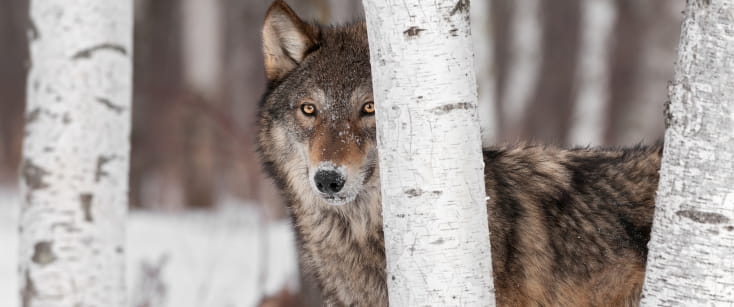
Turn in Poachers and Polluters (TIPP)
Call the TIPP line at 1-800-667-7561 or use our 24-hour, seven-day-a-week TIPP Service if you suspect any fishing, wildlife or environmental resource violations.
Download the Trappers Guide
More than 80,000 people participate in Canada's 300-year-old fur trade industry. The trapping industry in Saskatchewan includes more than 4,500 registered trappers and generates between $1.5 and $6 million every year.
Fur species are a renewable resource and many trappers depend on raw fur sales to supplement their annual income. Proper conservation and humane use will ensure the long-term sustainability of the resource and the trapping industry.
Buy a Trapping Licence
Buy a hunting, angling or trapping licence through HAL – the government's hunting, angling and trapping licence system.
Licence Fees
Fur Licences(Saskatchewan residents only)
Southern Fur Conservation Area
(SFCA, includes all private and occupied land in central and northern Saskatchewan) |
$45 |
Northern Fur Conservation Area
(NFCA, includes all unoccupied Crown land in central and northern Saskatchewan)
Note: Only NFCA member trappers are eligible for this licence |
$25 |
Youth Fur Licence(SFCA pr NFCA, available only at Ministry of Environment offices)
Note: Must be a Saskatchewan resident aged 12 to 18 years who has successfully completed a firearm safety/hunter education course and a trapper education course. Free youth fur licences are available separately with the purchase of a Habitat Certificate or as part of the youth licence package. |
Free |
Saskatchewan Treaty Indian(available at local band offices)
Note: Valid only for the sale of furs taken on a First Nation reserve. |
Free |
Apply for a Permit
Find trapping permits and information on import/export and sale of wildlife in the Publications Centre.
Saskatchewan Fur Program
View a summary of regulations, policy, and associated programs.
Wildlife Management Zone Map
Use the Wildlife Management Zones Map to help you identify important boundaries for areas where specific wildlife regulations may apply, including wildlife management zone boundaries.
Exercising Treaty Rights in Saskatchewan
An individual exercising the Treaty right to hunt, fish and trap for food in Saskatchewan must:
1. be a registered Indian, as defined by the Government of Canada's Indian Act;
2. carry a valid Certificate of Indian Status; and
3. be a member of a First Nation signatory to Treaties 2, 4, 5, 6, 7, 8 or 10, or a First Nation located within Saskatchewan that has not signed a Treaty.

